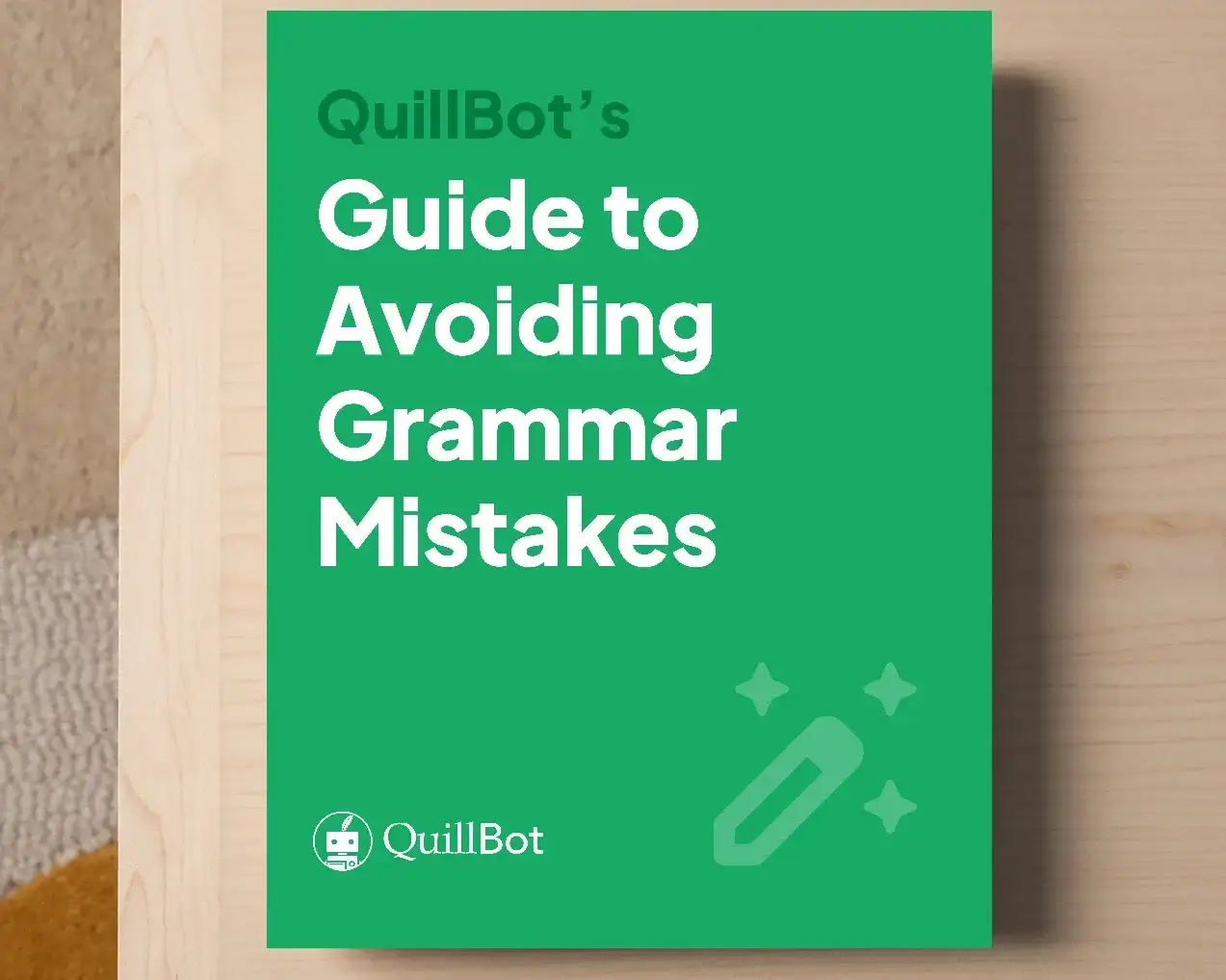Phrasal Verbs with Fall (Plus Idiomatic Expressions)
Phrasal verbs with fall include “fall behind,” “fall for,” and “fall into.” The verb “fall” means “to suddenly go to the ground,” but each phrasal verb with “fall” has a slightly different meaning. For example, “fall in with” means “to become friendly.”
Phrasal verbs with “fall” can be intransitive or transitive:
- Intransitive phrasal verbs, such as “fall apart,” don’t have direct objects.
- Transitive phrasal verbs like “fall for” have direct objects. Although some transitive phrasal verbs are separable, phrasal verbs with “fall” are usually inseparable. Therefore, the direct object can’t go between the verb and the particle.
There are also a variety of idiomatic phrases with “fall,” such as “fall short” and “fall in love.”
The definitions and examples below show how to use the most common idiomatic phrases and phrasal verbs with “fall.”
Soccer fans are falling all over themselves to get World Cup tickets.
When you’re writing with phrasal verbs with “fall,” QuillBot’s free Grammar Checker can help you conjugate them into different verb tenses.
Table of contents
- Fall apart
- Fall behind
- Fall back on
- Fall down
- Fall for
- Fall in
- Fall in love (idiomatic phrase)
- Fall in line (idiomatic phrase)
- Fall in with
- Fall into
- Fall into the wrong hands (idiomatic phrase)
- Fall off
- Fall out
- Fall over
- Fall all over oneself (idiomatic phrase)
- Fall short (idiomatic phrase)
- Fall to
- Fall through
- Fall through the cracks (idiomatic phrase)
- Fall under
- Frequently asked questions about phrasal verbs with fall
Fall apart
- To break into pieces (intransitive)
- To become overwhelmed with emotion (intransitive)
- Traci’s sneakers are falling apart because they’re several years old.
- After hearing the sad news, Danny started to fall apart, but he eventually felt better.
Fall behind
To stop keeping up with a competitor, standard, workload, or similar (intransitive)
Always contact your instructor when you fall behind on your assignments.
Fall back on
To rely on something or someone when an original plan fails (transitive, inseparable)
Fall down
To collapse to the ground (intransitive)
Fall for
- To develop romantic feelings for someone (transitive, inseparable)
- To be deceived by (transitive, inseparable)
- Elliott usually falls for people who are creative and artistic.
- Ian had to cancel his credit cards because he fell for a scam.
Fall in
To sink inward (intransitive with a subject that is a physical structure)
Fall in love (idiomatic phrase)
To begin to love someone or something
Fall in line (idiomatic phrase)
To follow or stay consistent with certain rules or standards
The tenants quickly fell in line with the new parking rules.
Fall in with
To become friendly (transitive, inseparable with a direct object that’s usually a social group)
Fall into
To become involved with something by accident (transitive, inseparable)
Fall into the wrong hands (idiomatic phrase)
To become the possession of a dangerous person or group
Fall off
- To become smaller or lower (intransitive)
- To become detached (transitive, inseparable)
- Restaurant sales usually fall off during a recession.
- One of the buttons fell off my shirt, and I can’t find it anywhere.
Fall out
- To become detached (intransitive)
- To end a relationship because of a disagreement (intransitive)
- After Sophie’s tooth fell out, the tooth fairy left $5 under her pillow.
- The band broke up after two members fell out over creative differences.
Fall over
To collapse from an upright position (intransitive)
Fall all over oneself (idiomatic phrase)
To be extremely eager or overzealous about something (always with a reflexive pronoun, such as “myself” or “herself”)
Fall short (idiomatic phrase)
To not reach a goal or expectation (intransitive)
Fall to
To become someone’s responsibility (transitive, inseparable)
Fall through
To not happen (intransitive)
Fall through the cracks (idiomatic phrase)
To fail to be noticed, helped, or included
Fall under
To fit into a category (transitive, inseparable)
Frequently asked questions about phrasal verbs with fall
- What does spring forward fall back mean?
-
“Spring forward fall back” refers to the time changes that occur because of daylight savings.
On the second Sunday in March, in places that observe daylight saving, everyone sets their clocks one hour ahead. When it’s time to fall back on the first Sunday in November, people move their clocks back an hour.
QuillBot’s AI Chat is a free and helpful resource when you have questions about idioms and phrasal verbs with “fall.”
- What does the apple doesn’t fall far from the tree mean?
-
“The apple doesn’t fall far from the tree” means that a person closely resembles one of their parents or caregivers. For example, if a child and mother both have strong math skills, someone might say, “the apple doesn’t fall far from the tree.”
In this English idiom, the apple is a metaphor for the child, and the tree is a metaphor for the parent or caregiver.
There are many idioms and phrasal verbs with “fall” in the English language, and QuillBot’s AI Chat can answer questions about them.
- What does till the wheels fall off mean?
-
“Till the wheels fall off” means “until it’s no longer possible.” This English idiom uses a car as a metaphor for anything that you can use until it’s no longer functional or fixable (even if it doesn’t have wheels).
“Fall off” is one of the phrasal verbs with “fall,” and it means “to detach.” Here are a few examples of how to use “till the wheels fall off” in a sentence:
- Our air conditioner is 50 years old, and we’re not replacing it until the wheels come off.
- Mia used her old backpack till the wheels came off.
When you’re curious about other English idioms, QuillBot’s AI Chat can provide quick answers.
- What does fall off the wagon mean?
-
“Fall off the wagon” means “to stop participating in a healthy lifestyle change.” For example, if someone quits using tobacco for a year and then starts again, they have fallen off the wagon. If someone starts exercising every day and stops, that’s also falling off the wagon.
The idiom “fall off the wagon” came from the temperance movement in the early 1900s and refers to a water wagon. Someone who quit drinking alcohol was “on the water wagon.” If they started again, they were “off the water wagon.”
When you’re curious about other idioms and phrasal verbs with “fall,” QuillBot’s AI Chat can provide quick answers.
- What does fall head over heels mean?
-
“Fall head over heels” means “to have sudden and intense romantic feelings for someone.” It’s an English idiom that uses the physical act of falling as a metaphor. Here are a couple of examples:
- After just two dates, Taylor fell head over heels for Travis.
- Haley didn’t fall head over heels for Alex at first, but she’s very much in love with him now.
When you’re curious about other idioms and phrasal verbs with “fall,” ask QuillBot’s AI Chat for definitions and examples.
Cite this Quillbot article
We encourage the use of reliable sources in all types of writing. You can copy and paste the citation or click the "Cite this article" button to automatically add it to our free Citation Generator.
Routh, N. (2025, October 08). Phrasal Verbs with Fall (Plus Idiomatic Expressions). Quillbot. Retrieved December 8, 2025, from https://quillbot.com/blog/verbs/phrasal-verbs-with-fall/

